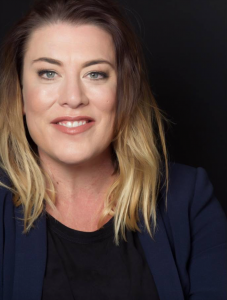Partner School – Parkmore Primary School, Forest Hill
It takes a village
I have been at the Principal of Parkmore Primary School since 2016, although the Kids’ COACH program has been running here for much longer. Schools are a hub in any community and bringing in the broader community, as with the Kids’ COACH program, is particularly powerful. It impacts on the children involved, of course, but also on the teachers, parents and the school community. When I think of this program I am strongly reminded of that famous saying, “it takes a village to raise a child”.
Parkmore focuses on Positive Education – PosEd. This goes beyond the ‘Three Rs’ to an understanding that children need to feel known, safe, and secure in order to optimise their learning and development. As a school, we have a strong sense of responsibility for the pastoral care of each child. The PosEd program means that we are better able to notice and nominate for mentoring the children who need more one-to-one attention than the teachers can provide. Teachers and mentors each have a role to play in the life of the child, but it is a different role.
The Kids’ COACH program is coordinated for the school by one of our teachers, who works closely with the LifeCare program coordinator. The volunteer mentors are carefully selected and well trained. It is usually a teacher who will nominate a child who needs extra care and attention. This may be for family, social or other reasons, such as school engagement issues. The LifeCare coordinate will work with the school coordinator to carefully identify the most suitable mentor for each child. Once the match of mentor and child is made, the school coordinator approaches the parents to ask if they agree to their child taking part.
All mentoring activities take place on school grounds and during school hours. At Parkmore this takes place in the before- and after-school-care space, which has tables and chairs, a cupboard for mentoring materials, and is open to the cafeteria. In their time together the mentors and children might cook, play, draw, or just talk. They engage in rituals that settle and comfort the child. In the context of this non-judgmental relationship, each child has the space to be themselves.
I see the children involved becoming happier at school or, sometimes, just calmer. The parents tell us that they can see the results, with the kids talking about the program and getting excited about it. Many of the children will speak of “my mentor”, or proudly show me what they have baked or made with their mentor. They want to tell, show, bring, share the mentor experience with others.
Teachers and students at Parkmore have a strong sense of appreciation for the value of the program and it is not seen as an interruption to the school day. On the contrary, we can see that it enhances the student’s school experiences and learning.
Sometimes we nominate children for the mentoring program due to behavioural issues. As a school, we recognise that we have a responsibility to look at this issue with the child, rather than to punish them. The days of being sent to the principal’s office to be disciplined are over. We have noticed that the gentle and persistent mentoring relationships help to develop pro-social behaviour in the children.
The program is extremely well run by the LifeCare coordinator and, even more, it is thoughtfully and carefully run. She is a brilliant communicator and there is great mutual respect between the adults involved in the program, with high levels of trust and collaboration from which the children benefit.
Schools have a strong ethos of volunteerism and the work of the volunteer mentors affirms and supports our teachers. The mentors write confidential reports after each session so that the school and LifeCare can monitor the progress and wellbeing of each child. I have noticed that the mentors at Parkmore have been very diverse in age and background, which I think is a strength.
Occasionally a mentor will ask for assistance with a child who has not engaged well with the mentoring process. Someone from the school will discuss this with the child and give them the option of leaving the program. The discussion becomes a valuable lesson for the child in negotiating their own lives, and choosing what they engage with. None of the children have opted out of the program but have chosen to engage with it more fully.
Although LifeCare is a Christian organisation there is absolutely no Christian content in the program. I particularly value their integrity on this matter as religion is such a sensitive issue these days, especially in secular schools. This is also a demonstration to our teachers that their personal beliefs and values may be expressed through their work without being voiced in their work.
Another aspect I appreciate about the LifeCare program is their ability to provide longitudinal care for each child. As LifeCare has youth and family mentoring programs they are able to stay in touch with the children after they leave Parkmore. LifeCare offers a range of services and it is valuable for me as a Principal to be able to refer families to their programs, particularly parenting forums and support.
It is also a great benefit to the school to have LifeCare involved in our community in this way, in the event of particular crises in the lives of our children. It means that the networks and relationships are in place to provide the best possible support for the children in the shortest possible time.
The Kids’ COACH program is a wholly positive experience for Parkmore, for the kids and their families, and for the school community. I am very happy to share about it for this book and look forward to continuing our collaboration with LifeCare on this wonderful program.
Saraid Doherty, Principal, Parkmore Primary School, Forest Hill